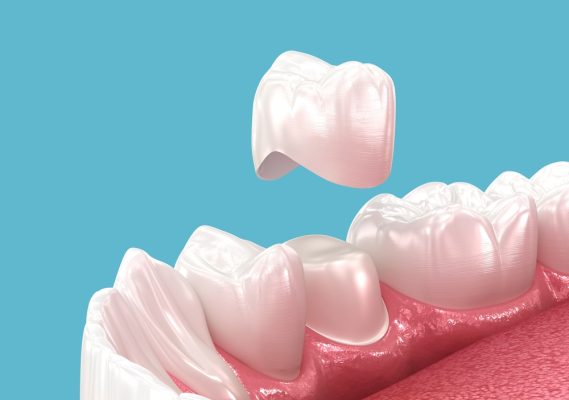Understanding Root Canal Therapy
Root canal therapy is a common dental procedure that often comes with many questions and misconceptions. If you’re dealing with tooth pain or infection, it’s essential to know the benefits and potential risks of the treatment. Glenwood Dental Associates in Smyrna, DE, is dedicated to making your dental care experience as smooth as possible. Our dental practice proudly serves patients throughout Dover, Clayton, and Kenton.
Here, we’ll break down the key benefits, the potential risks, and alternative treatments to help you make an informed decision about your oral health. If you have questions or are considering root canal therapy, contact our Smyrna dentist at (302) 653-5011 to learn more or schedule your appointment.
After-School Dental Care for North Smyrna Elementary Families
Conveniently located just minutes from North Smyrna Elementary School at 17 West Glenwood Avenue, Glenwood Dental Associates makes dental care fit seamlessly into your family’s busy schedule. Parents appreciate being able to pick up their children from school and head straight to their dental appointment without traveling across town.
At Glenwood Dental Associates, we believe family dentistry is the cornerstone of lifelong oral health. Our Smyrna dental team creates a warm, friendly environment where children feel comfortable and parents feel confident in the care their family receives. We welcome North Smyrna Elementary students and their families to experience dental care that’s not just accessible, but truly exceptional.
Benefits of Root Canal Treatment
Immediate Pain Relief
The primary reason for undergoing a root canal is to alleviate severe tooth pain. When a tooth’s pulp becomes infected, it can cause discomfort that affects your daily life. Root canal therapy removes the infected tissue and stops the pain, offering relief that many patients experience almost immediately.
Preserves Your Natural Teeth
Previously, an infected or damaged tooth would often need to be extracted, leading to potential long-term dental issues. Root canal treatment allows you to keep your natural tooth, maintaining its function and structure. This approach helps preserve your bite and prevents the need for more extensive procedures like dental implants or bridges.
Reduces the Risk of Infection
Untreated tooth infections can spread to other areas of the mouth and body, leading to more serious health concerns. Root canal therapy stops the infection at its source, preventing it from spreading. This helps safeguard your overall health and reduces the risk of future complications.
Restores Function and Appearance
A damaged tooth can make speaking and eating difficult. After a root canal, you’ll regain the ability to chew and speak comfortably. The treatment is often followed by a dental crown, which restores the tooth’s shape and appearance, giving you back the confidence to smile.
Supports Long-Term Oral Health
Maintaining healthy teeth and gums is essential for overall well-being. Root canal treatment contributes to long-term dental health by removing infection and restoring the tooth’s functionality. It allows you to continue caring for your teeth as you normally would, without the disruption of tooth loss or extractions.
Risks of a Root Canal
Potential for Incomplete Removal of Infection
One of the risks associated with root canal therapy is the possibility that some infected tissue may not be fully removed. If the infection persists, it can cause recurring pain or additional dental complications. However, this is relatively rare and can often be resolved with follow-up treatment.
Damage to Surrounding Teeth
During the procedure, there’s a slight risk of accidentally damaging adjacent teeth or tissues. While dental professionals take great care to avoid this, complications can sometimes arise, requiring further treatment.
Discoloration of the Treated Tooth
A side effect that some patients may notice after a root canal is discoloration of the treated tooth. This can occur due to changes in the tooth’s structure after the infection is removed. While it can be a cosmetic concern, it can be managed with whitening treatments or a dental crown.
Tooth Weakening
The process of removing the infected tooth pulp can weaken the structure of the tooth, making it more susceptible to fractures. To help prevent this, a crown is often placed after the procedure, reinforcing the tooth and ensuring its durability.
Endodontic Treatment Options – Root Canal Alternatives
Tooth Extraction
In cases where a tooth is beyond saving, extraction may be the only viable option. While this may seem like a drastic measure, it can be necessary to prevent further issues. Extraction might be followed by a dental implant or bridge to restore the bite and appearance.
Antibiotics and Pain Management
For some dental issues, antibiotics may be prescribed to manage pain and infection. However, antibiotics only treat the symptoms and don’t remove the infected tissue inside the tooth. A root canal is the definitive solution for treating a damaged tooth effectively.
Pulp Capping
In less severe cases, pulp capping may be an option. This procedure involves removing only part of the infected tissue and protecting the pulp with a special material. It allows the affected tooth to heal and avoid a full root canal.
Apicoectomy
An apicoectomy is a surgical option that may be necessary if a standard root canal fails or there’s persistent infection. This procedure removes the tip of the tooth’s root and any surrounding infected tissue, promoting healing and restoring the tooth’s health.
Frequently Asked Questions
Recovery time varies from patient to patient but typically takes a few days to a week. Most people experience minimal discomfort, and over-the-counter pain medication is usually sufficient to manage it.
With proper care, a tooth that has undergone a root canal can last for many years. The placement of a crown can further strengthen the tooth and extend its lifespan.
While root canals often have a high success rate, some patients may require follow-up visits for additional treatment. This could involve re-treatment or further procedures if any complications arise.
With modern anesthesia and techniques, most patients report that root canal therapy is no more painful than getting a filling. Any post-procedure discomfort can typically be managed with painkillers.
While the success rate of root canal therapy is high, there’s always a chance of failure, usually due to incomplete cleaning or a new infection. However, re-treatment is often effective in addressing these issues.
Schedule Your Consultation at Glenwood Dental Associates
If you’re experiencing tooth pain or have questions about root canal therapy, Glenwood Dental Associates is here to help. Our team in Smyrna, DE, provides exceptional dental care in a compassionate environment. Don’t wait—contact us at (302) 653-5011 to schedule your appointment today.
We welcome patients from Smyrna and the surrounding areas, including Dover, Clayton, and Kenton. Take the first step toward a healthier smile!


